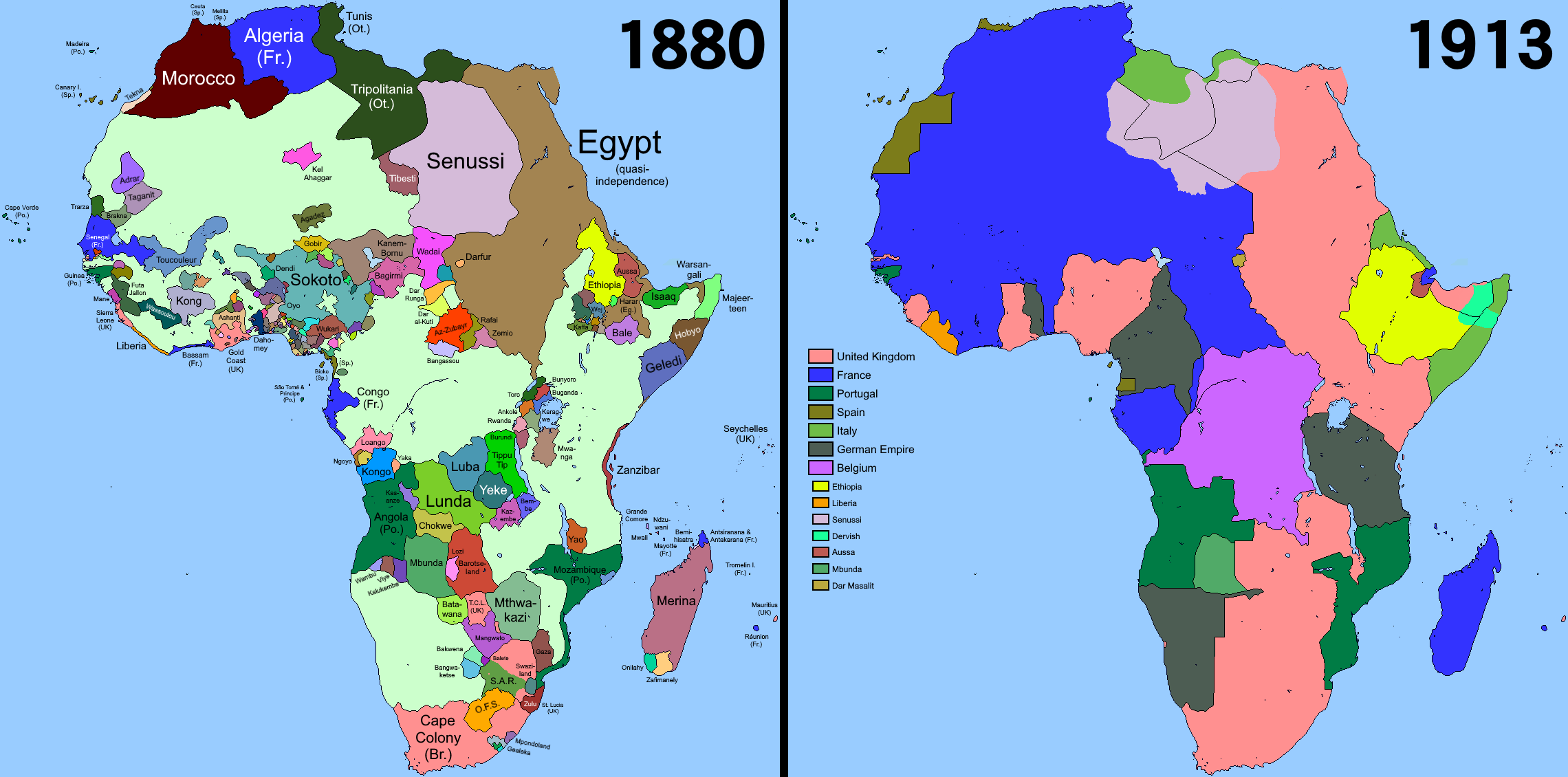Echoes of Empire: Tracing the Influence of Colonial History on Contemporary Water Politics in Africa
Unraveling the Colonial Threads in Africa's Water Politics
The 'Scramble for Africa', a defining period of European imperialism, left indelible marks on the continent's water politics. From 1880 to 1914, European powers partitioned almost 90% of Africa, looking at Figure 1, from 10% of Africa being colonised to 90% in 1913, significantly altering its hydro-political landscape. This era, epitomised by the 1884 Berlin Conference, set the stage for enduring geopolitical and resource-related tensions. In this blog, I'll explore how Africa's colonial past continues to shape its present water governance, dissecting the complex interplay of historical influences and current water challenges across the continent.
 | ||
| Figure 1. The Transformation of Africa during the Scramble (1880-1913)
Legacy of Colonialism: The Urban-Rural Divide in Water Access Colonialism's legacy has been significant for Africa in many aspects, looking at Figure 2, the railway in South Africa connects Pretoria and Cape Town after the discovery of gold. Legacies alike also significantly impacts water service inequality in Africa, with Malawi exemplifying the broader regional challenges. During colonial times, investments in urban water services primarily served the elite, neglecting rural areas and creating a lasting urban-rural disparity. Post-independence, Malawi and other African nations struggled to equitably extend these services due to rapid urbanisation and limited resources, compounded by the remnants of colonial urban planning that promoted spatial segregation. Today, efforts to improve water access in Malawi involve public, market, and voluntary sectors, yet challenges persist in providing efficient infrastructure, reflecting a common issue in sub-Saharan Africa (Mathur and Mulwafu, 2018). Historical legacies, combined with current socio-economic conditions, continue to fuel water service inequality, underscoring the need for political commitment and innovative solutions across the region. Countries like Nigeria illustrate how modern privatisation and technology-focused supply systems often benefit certain urban groups, highlighting the ongoing struggle to bridge the water access gap in urban and rural areas (Akpabio et al., 2017). In countries with a more extended colonial history, cities tend to have better access to water and sanitation compared to those colonial rule was short-lived. Therefore, despite morally objectionable nature, colonialism offers critical insights for current endeavours to enhance water and sanitation access in urban areas across Africa (Njoh and Akiwumi, 2011). This somehow helps with achieving: Sustainable Development Goal 6: "Ensure availability and sustainable management of water and sanitation for all"
Coming to conclude this blog, recognising the enduring impact of colonial history on Africa's water challenges. The Scramble for Africa shaped the continent's water management, creating disparities that persist today. Urban areas, often better equipped due to longer colonial influence, contrast starkly with neglected rural regions. Malawi's struggle to balance urban and rural water access post-independence mirrors wider regional issues. My exploration underlines the need for innovative, politically-committed solutions to bridge these gaps. Looking ahead, my next blog, "Rivers Beyond Borders," will delve into the complexities of transboundary water cooperation. Stay tuned! |


Comments
Post a Comment